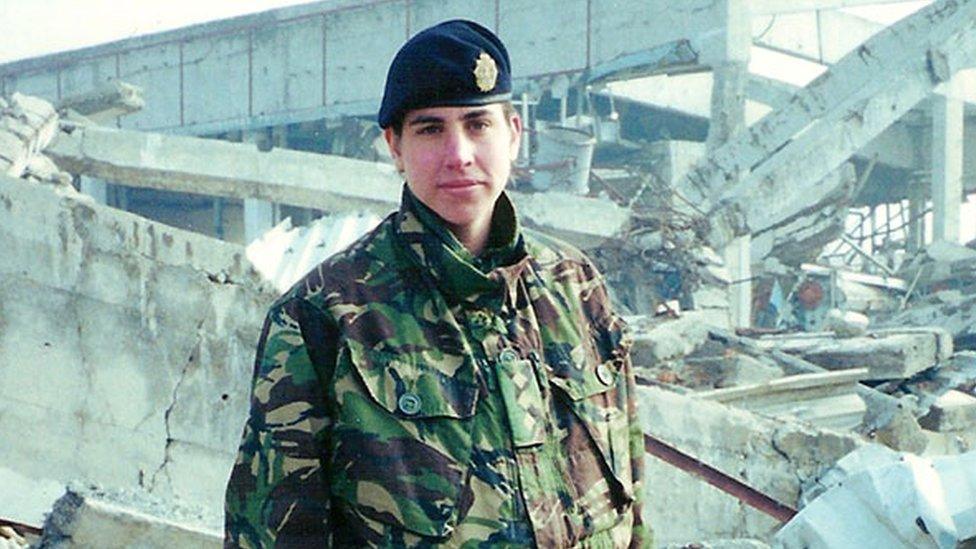Armistice 2023: Art bringing solace to traumatised veterans
- Published
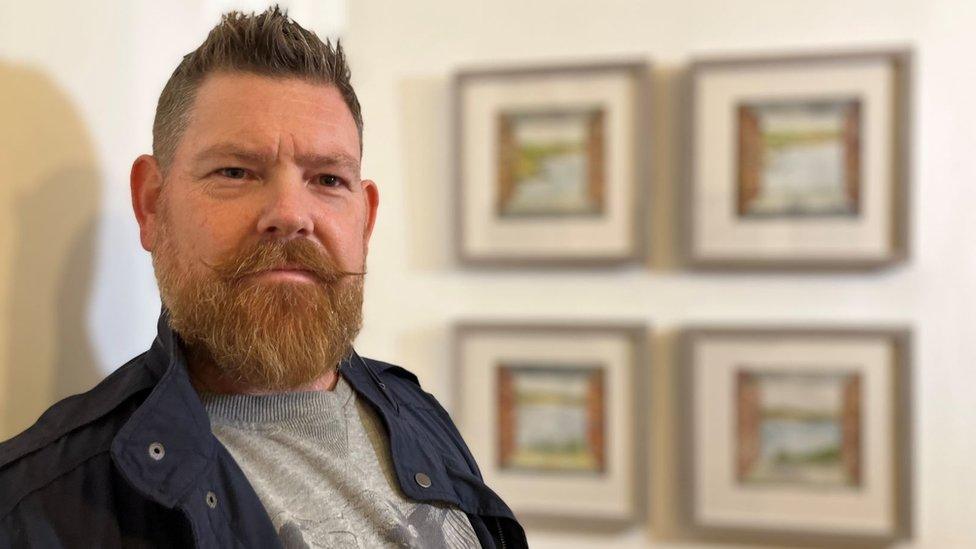
Army veteran Ben says painting has helped him manage his post-traumatic stress disorder
Years after leaving the Army, just a noise can take Ben Wood back to the terror of patrolling the streets of Northern Ireland during the Troubles.
"The anticipation, the expectation that something can happen around each corner, the hyper-vigilance never left," he said.
But Ben has recently found something that calms his restless mind - painting.
"I go into a trance-like state... I can let go," he said.
His work is now part of an exhibition of veterans' artwork at Tuner House in Penarth, Vale of Glamorgan.
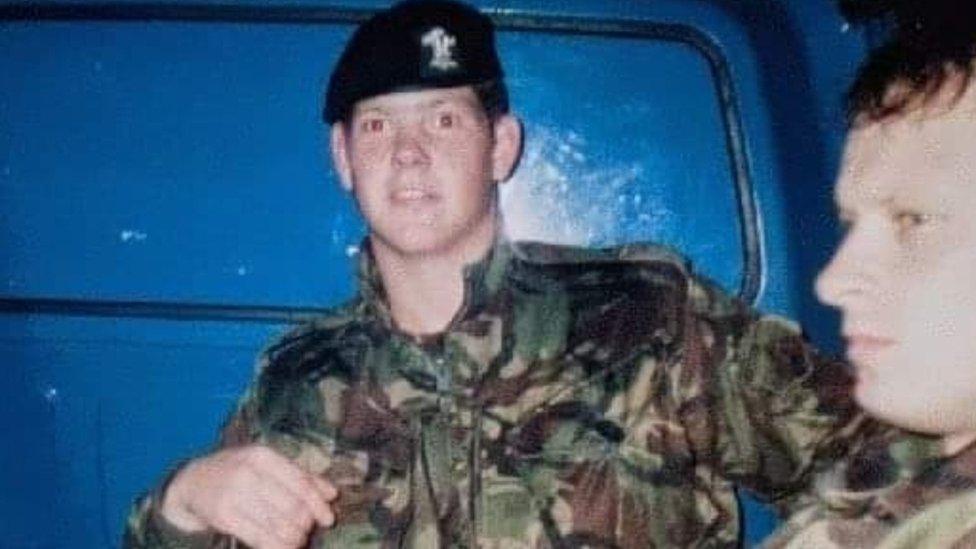
Ben served in the Army for six years
Ben, 48, from Caerphilly, spent six years in the Army from 1992.
He has post-traumatic stress disorder (PTSD) and said life had been "extremely difficult" since leaving and trying to adapt to civilian life.
"I fell into drinking, drugs and just used those to mask everything, my feelings, my insecurities and trying to fit into civilian life really," he said.
Ben said he found meeting other people or being around too many people a daily struggle and often felt agitated and angry.
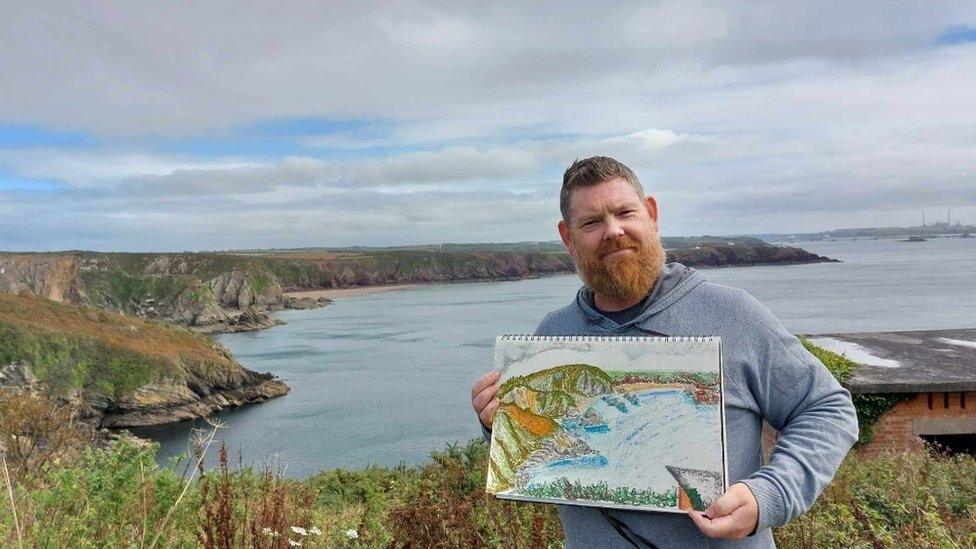
Ben was introduced to art by the charity The VC Gallery
"I have failed marriages, failed relationships, now I'm on my own and sometimes I think being on my own, that's all that's left for me because I really don't deal with everyday life as easy as other people, I believe," he said.
Ben said being introduced to art by charity the VC Gallery, external had been life-changing.
"For years I felt alone, I felt a burden with my issues, my problems... but when I went down there the first time, I came home and I cried because I wasn't judged and I was accepted and it was a wonderful feeling."
Painting has given him some solace and "tends to switch off my over-active mind. I can let go, I can enjoy it".
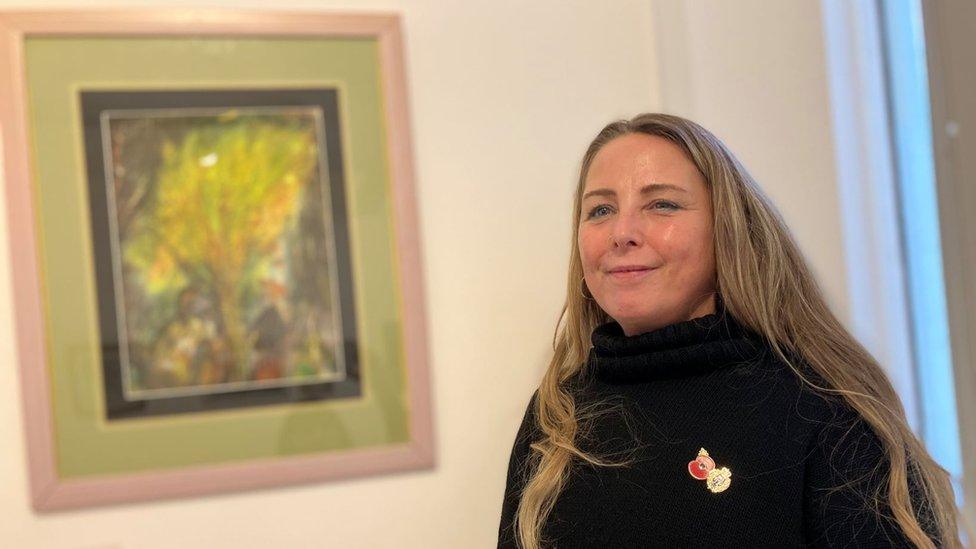
Samantha says finding art has saved her life
Another veteran showing her work at the Veterans, Family, Wales exhibition, organised by charities Woody's Lodge, external and VC Gallery, is Samantha Dinsdale Brown, who spent six years in the Royal Air Force.
"I worked for the NHS for several years and had a massive breakdown and I just started painting because I was self-harming," she said.
"I thought 'I can't keep doing this, I'm not going to be here anymore', I had a canvass and paint at home and just went for it."
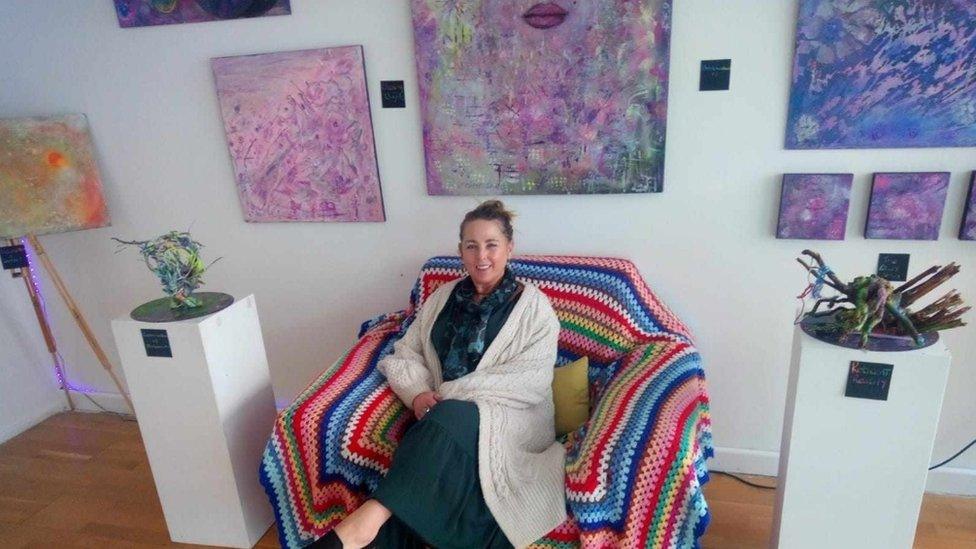
Samantha recently had her first solo art exhibition
Like Ben, she described going into a trance-like state.
"It's when I'm really wrapped in my trauma, it's a safe space for me, and that's what's important, to have these outlets to manage our mental health," she said.
Samantha recently had her first solo show at The VC Gallery in Haverfordwest, Pembrokeshire, and said finding art and other creative outlets had transformed her mental health.
"It's saved my life, that's it really, it's given me confidence, it's empowered me, it's given me pride, I've been given a voice and I feel seen," she said.
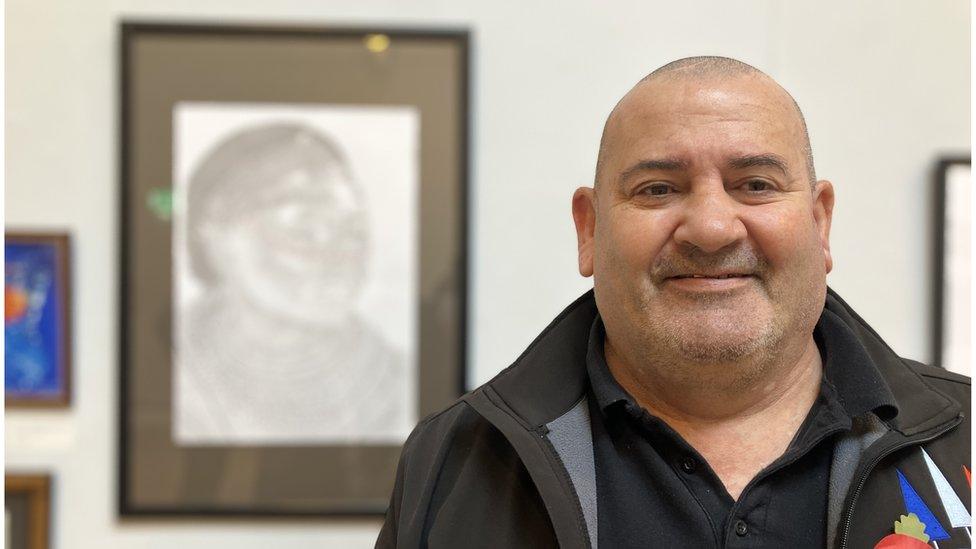
Army veteran rob says he finds drawing therapeutic
Army veteran Rob Watts from St Athan, Vale of Glamorgan, said he only began to understand his own mental health after spending time with other veterans.
"I'd never heard of PTSD until I went to Woody's Lodge and understood what it was. I realised I'd been suffering from it for an early age," he said.
Rob, whose work is also part of the exhibition, also finds creating art calming.
"I'm always drawing something and it takes my mind off things. I totally blank and concentrate on what I'm doing, and I find it a good help," he said.
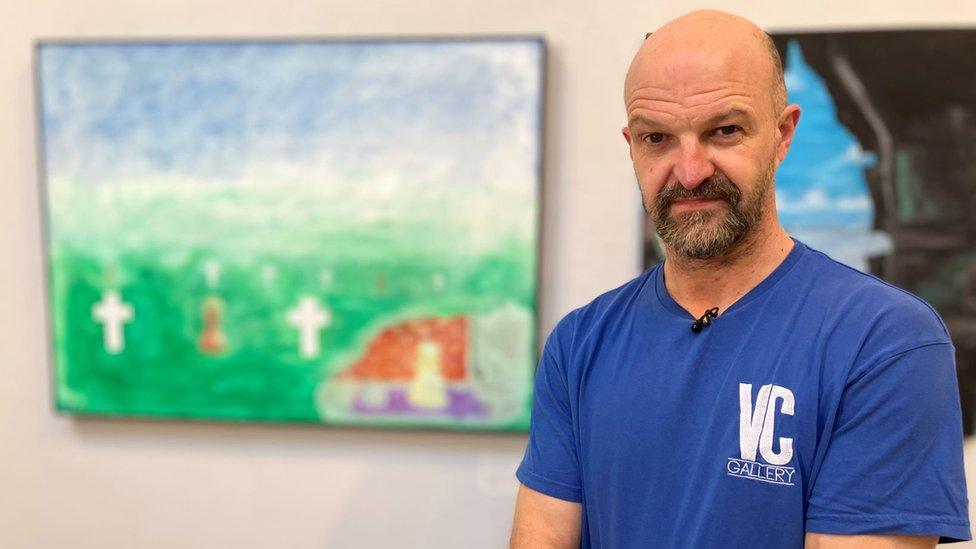
Steve, who was in the police, has found solace in painting
Steve Davies from Pembroke Dock is not a veteran but a former police officer.
"Coming from the background I come from, there were a few different traumatic things in work and obviously they've been through some of that as well," he said.
"I was homeless not long after going to the VC and within a few months Barry John [who runs the charity] managed to find a flat for me."
His artwork on display at the exhibition is of a graveyard where veterans' graves are replaced with pawns from a game of chess and a homeless veteran is depicted as a pawn.
"It takes you away, your own little space, you can do what you want, doodle or sketch whatever and it takes you away from what's actually happening perhaps," he said.
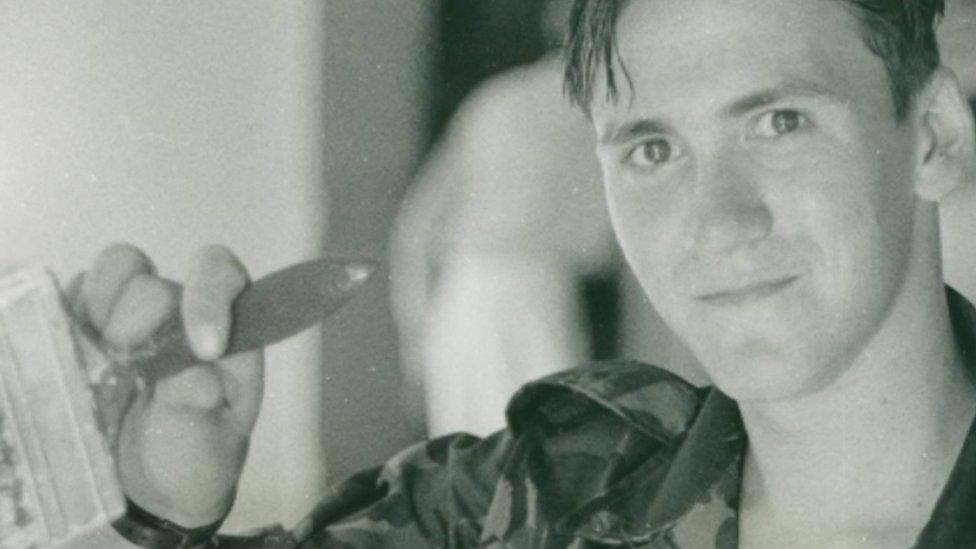
Barry John set up a charity to support other veterans almost 10 years ago
Charity VC Gallery was set up by veteran and war artist Barry John almost 10 years ago.
As an infantry soldier in Northern Ireland, Kosovo and Poland, he would paint as a way of documenting his experiences and at the time did not consider it to be therapeutic.
After leaving the Army, he realised art could be a tool for helping veterans.
"I thought to myself this is a good medium to use for getting people to talk," he said.
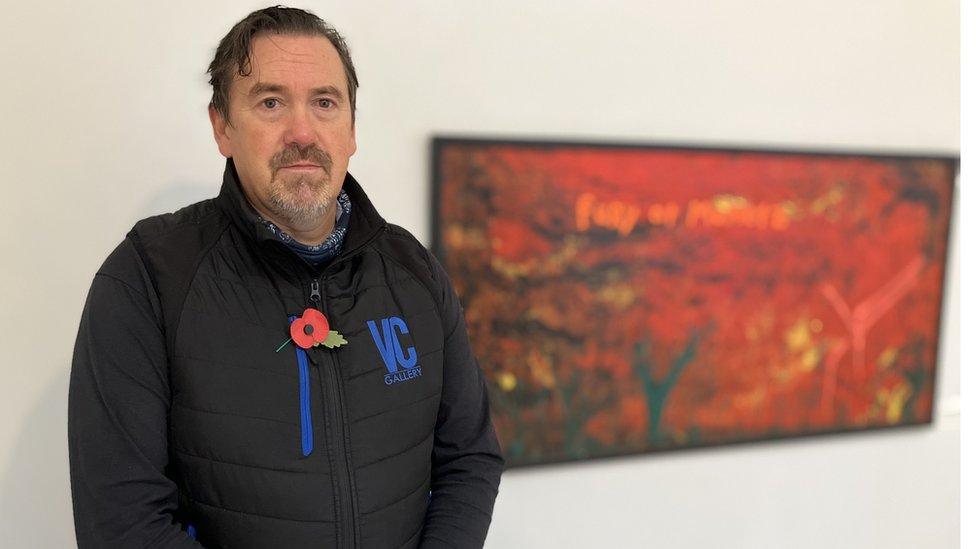
Barry has created art all around the world while serving in the Army
"Instead of asking about their problems, we were actually doing something creative first, and by doing that, it gives people the chance to relax and open up a bit."
He believes the exhibition, which runs until 17 November, "really showcases people's emotions through colour".
"The creative outlets are very good in helping people re-connect with trauma or to be social and engage with their community," he said.
"It's very, very brave to be able to put something on the wall... it can be quite an emotional thing to do."
Ben wants to encourage others who have experienced trauma to give art a go.
He said: "Being on your own and in your own mind can be the worst place in the world, so reach out and find someone, talk to someone and things will get better."
If you have been affected by issues raised in this article you can visit the BBC Action Line page.
- Published21 February 2021
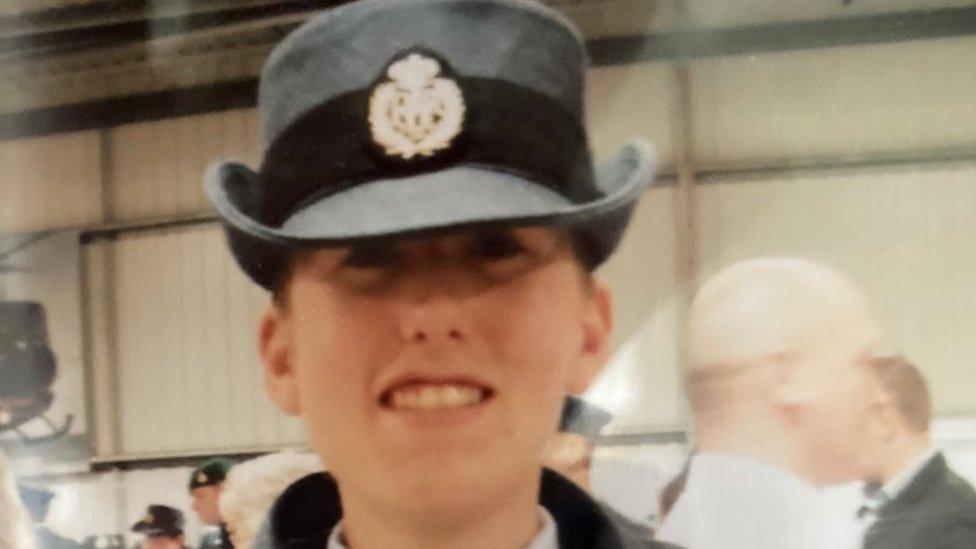
- Published12 August 2023
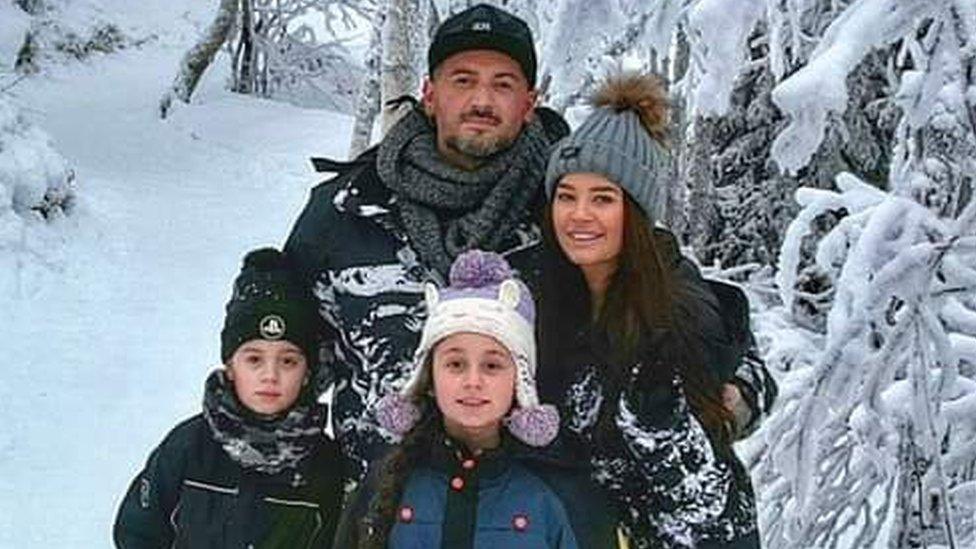
- Published8 March 2021
